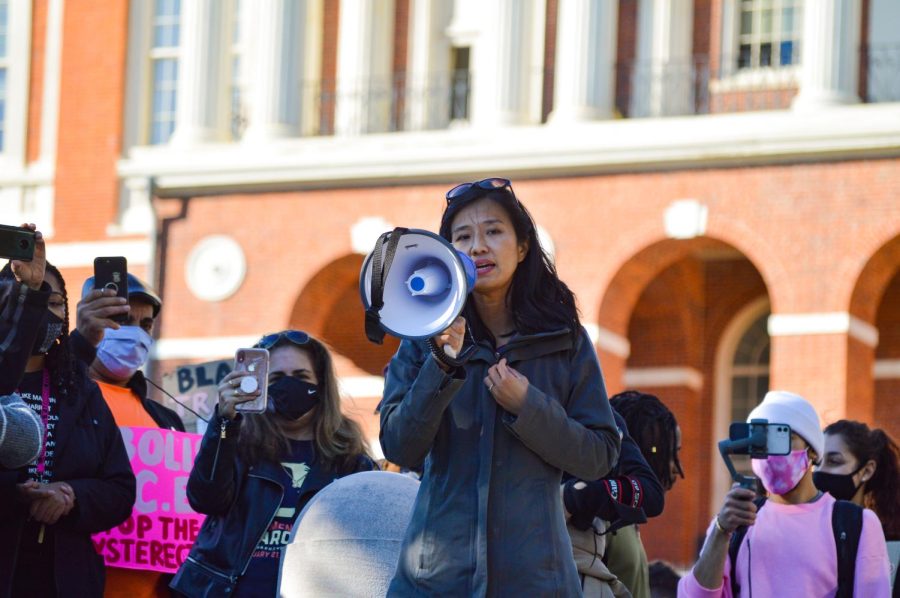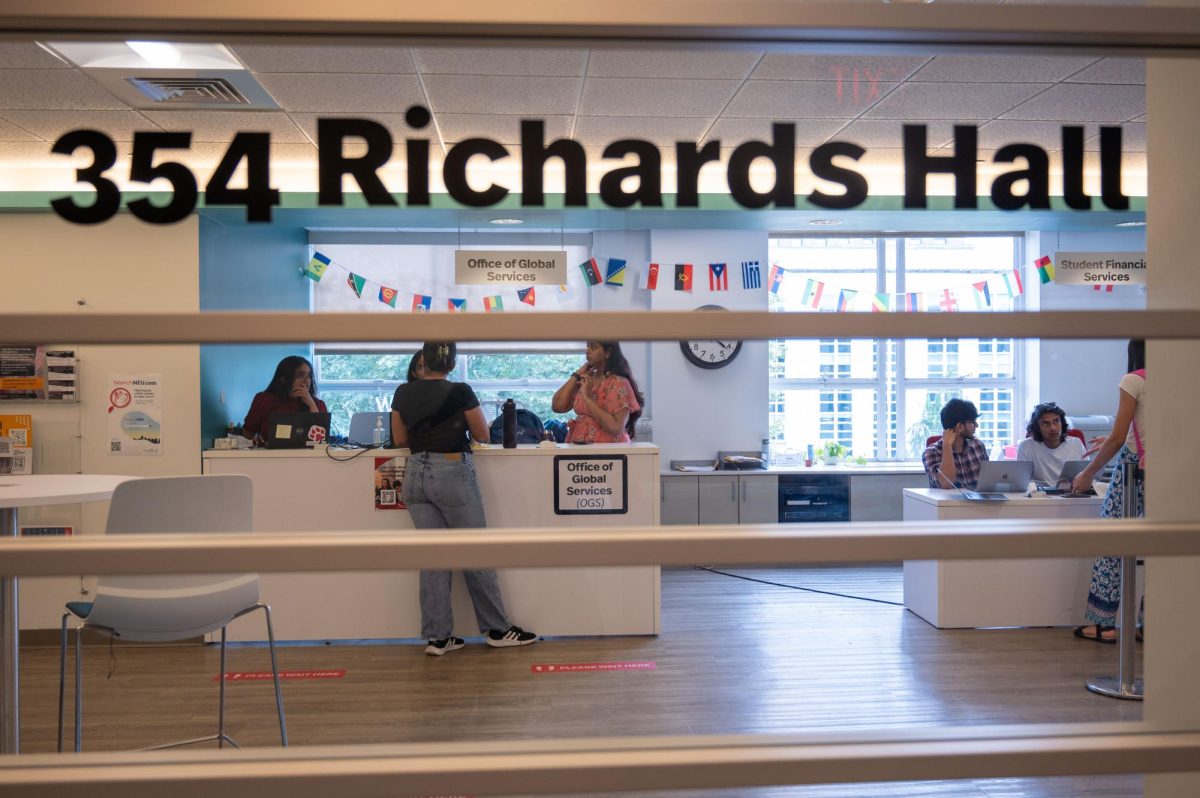Michelle Wu and Ed Markey discuss new plans for fare-free public transit in Twitter Spaces event
Boston Mayor Michelle Wu, pictured speaking in a rally in 2021, conversed with Democratic Sen. Ed Markey Feb. 18 on Twitter Spaces to strategize fare-free public transit.
February 23, 2022
Boston Mayor Michelle Wu joined Democratic Sen. Ed Markey Feb. 18 on a Twitter Spaces event to discuss plans to make fare-free public transit across the country a reality.
“Starting March 1, three key bus routes in the city of Boston will be free to board: the 23 bus, the 28 bus and the 29 bus,” Wu said.
Wu’s pilot program for fare-free bus lines 23, 28 and 29 will begin March 1 and last for two years — the bus pilot is seen as a big test of her administration’s ability to put the fare-free public transit campaign promise into place. The program could expand to other buses and last for an extended period of time depending on the results of this pilot, according to the City of Boston’s website.
The three bus lines run through Mattapan, Dorchester and Roxbury, all communities in Boston whose residents often rely on public transit to move around the city. Making these three bus lines fare-free may boost ridership and make buses more reliable by minimizing the time buses spend at a given stop.
Fare-free public transport was a big element of Wu’s mayoral campaign, which goes beyond the three bus routes: she wishes to make the entire Massachusetts Bay Transportation Authority, or MBTA, system free.
“In other parts of the state, like Lawrence, when you do [make public transit fare-free] for a longer-term, it makes a huge difference,” Wu said.
The city of Lawrence in northern Massachusetts made some of its bus routes free Sept. 19, 2019, a program that Wu has praised several times before during her mayoral campaign. She said her pilot is a continuation of former Mayor Kim Janey’s program that made the 28 bus fare-free.
Wu’s fare-free public transit pilot wasn’t the only policy discussed during the Twitter Spaces event. They also discussed the Freedom to Move Act, which is sponsored by Markey and Rep. Ayanna Pressley, a Democratic representative for Massachusetts.
“[The Freedom to Move Act] would be a huge boon to help incentivize and fund the types of things we are doing in Boston and in many more places,” Wu said.
The Freedom to Move Act, which was introduced in May of 2020 and has yet to pass through either the U.S. House of Representatives or the Senate, proposes that the Department of Transportation give five-year competitive grants to local governments, non-governmental organizations and transportation agencies that lost money from creating fare-free public transportation or who have invested a significant amount of money into improving public transit.
An act like this would allow politicians to call for fare-free public transport without worrying about the potential consequences of the MBTA losing its stream of revenue that funds the system to run.
In addition, Wu and Markey discussed the impact the Green New Deal has had on discussions about transit within the United States.
“[Rep] Alexandria Ocasio Cortez and I introduced the Green New Deal just three years ago in February of 2019,” Markey said. “In a large way, that has helped to transform the way people view all these issues, including transportation justice.”
Electric-run and energy-efficient public transport and infrastructure were brought up throughout the duration of Wu’s and Markey’s discussion.
“We needed to find space for an amazing art school in Boston which was spilling over. We had preforming arts students using closets as rehearsal spaces because they were growing and very successful and their building was falling apart. We needed to build a new building, it is now going to be a net-zero building…” Wu said when describing an example of public energy-efficent infrastructure inspired by the Green New Deal.
There are many who aren’t as enthusiastic about Wu and Markey’s plans for improving public transit.
“These are all measures that would benefit working people in the city,” Emilia Morgan, an employee at Home Depot and Roxbury resident said, referring to Wu’s plans for fare-free public transport.
Morgan grew up in Brookline and has lived in the city for most of her life. Like most residents of the city, she regularly took the MBTA to reach school, work and other places. While Morgan currently owns a car, living most of her life without one has led her to support calls for fare-free public transport. However, she critiques Wu’s plans to achieve this.
“Instead of a progressive tax on institutions like universities, Wu’s plan calls for a regressive consumer gas tax to fund fare-free bus services and suggests the city research another regressive tax measure: congestion pricing,” Morgan said.
Congestion pricing is the concept of charging individuals more for infrastructure used by the public, such as the T, during peak hours on the road and less during off-peak hours to minimize congestion. This idea has been proposed in Massachusetts before, but some residents, like Morgan, have criticized the plan for charging people who need public transport the most for using it.
“Such a measure would unfairly shove the fiscal burden onto working people,” Morgan said.







